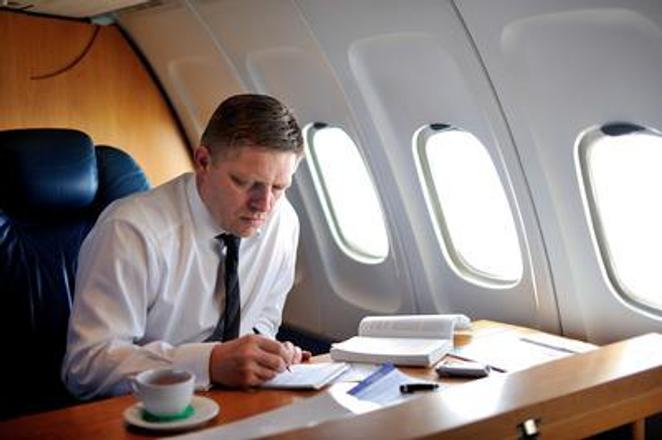Fico is also likely not going to speak with Russian President Vladimir Putin about Russian aggression in Ukraine, the Sme daily wrote.
“I can bet that no; Fico does not use terms as aggression, occupation at all. In his assessment of Russia he admitted maximally the violation of international law," head of the Institute for Public Affairs Grigorij Mesežnikov said for Sme. Fico’s visit to Russia is a display of personal sympathy, the analyst adds. “He often upholds Russia though in practical issues he honours agreements with European partners.”
Foreign and European Affairs Minister Miroslav Lajčák, Education Minister Juraj Draxler and Environment Minister Peter Žiga are travelling to Moscow with the prime minister. Fico is returning to Moscow after three weeks. Just when ex-Czech MFA Karel Schwarzenberg has become persona non grata in Russia, Fico will be welcomed in the Kremlin and the State Duma, the Russian parliament.
The visit will be watched closely also regarding the military conflict in eastern Ukraine and Russia’s participation in it. The first Russian official with whom Fico will speak on June 2 will be State Duma Speaker Sergey Naryshkin who is on the European Union’s sanctions list. Fico recently urged Brussels to reprieve Naryshkin and other Russian politicians. Naryshkin stated that Europe should not pay attention to the anti-Russia propaganda of the United States and have independent foreign policy.
Fico holds a similar opinion when he interprets the conflict between Russia and Ukraine as a geopolitical duel between the West and Russia or the United States and Russia, Mesežnikov explains.
Fico will also meet with Minister of Trade and Industry Denis Manturov and will have lunch with Prime Minister Dmitry Medvedev. In the afternoon, he meets with Vladimir Putin.
The supplies of energy resources, processing of used nuclear fuels and the cyclotron centre will be among the topics raised by Fico during the visit, the Government Office informed the Pravda daily. The Slovak PM also wants to talk about the agreement on oil supplies to Slovakia and also the issue of gas supplies, following the statement of Gazprom that it will stop transit via Ukraine in 2018 or 2019.


 PM Robert Fico (source: SITA)
PM Robert Fico (source: SITA)